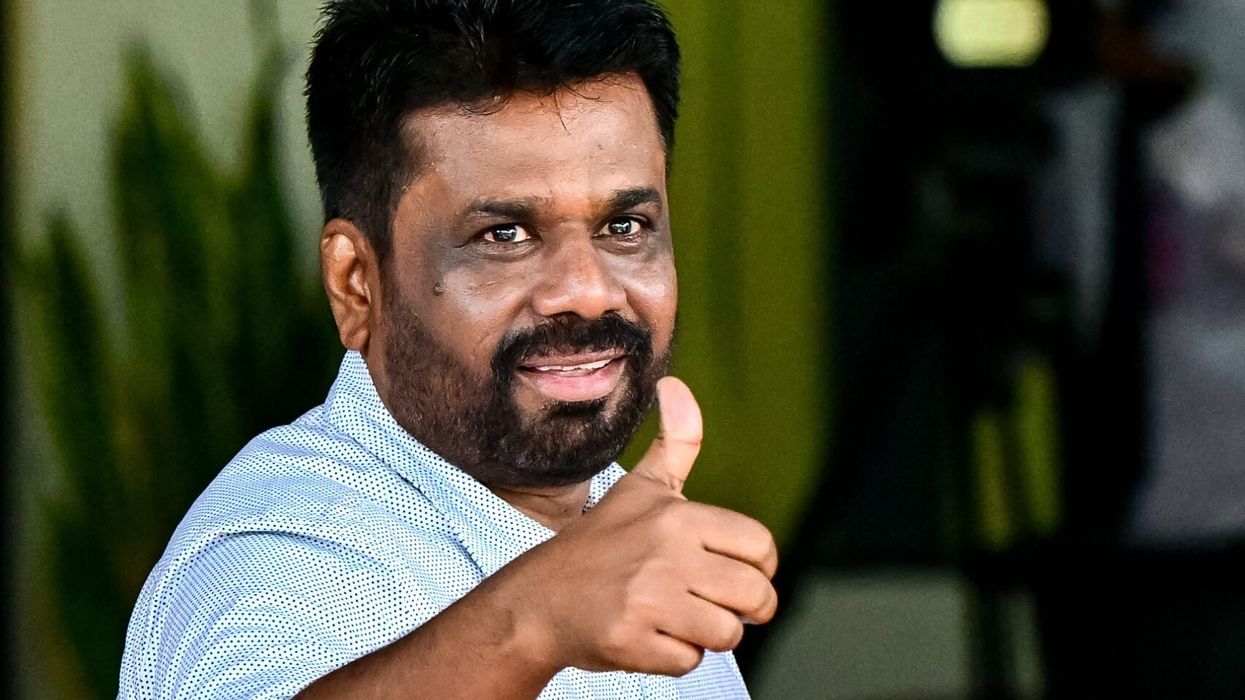SRI LANKA’S presidential hopeful, Anura Kumara Dissanayaka, is calling for a peaceful revolution after his Marxist party failed to seize power in two uprisings that left more than 80,000 people dead.
The 55-year-old son of a labourer has emerged as a serious contender in the presidential polls on Saturday (21), after forming a coalition with professionals frustrated with long-established politicians.
Dissanayaka blames successive governments – both socialist and right-wing capitalist – for the corruption, nepotism and inefficiency that led to the island’s economic meltdown in 2022.
Dissanayaka and his JVP, or People’s Liberation Front, have seen their popularity rise since the chaos two years ago when the country of 22 million people ran out of food, fuel and medicines.
Then president Gotabaya Rajapaksa was forced to flee the country and resign after protesters stormed his palace in the capital.
“For the first time in Sri Lanka’s post-independence history, governance will shift from the control of a few corrupt elite families to a people’s government,” he wrote optimistically in his presidential manifesto.
Dissanayaka, a former agriculture minister, sided with the protesters, but was not directly involved in toppling Rajapaksa, a former ally of his party.
Soon after assuming leadership of the JVP in 2014, Dissanayaka vowed they would not take up arms again and committed to coming to power through elections.
He formed the National People’s Power (NPP) coalition to distance the JVP from its violent past and win broader support.
“We assure the people that we will never again take up arms,” he said in 2015, in a statement published on the JVP’s website.
The party’s first insurrection was in 1971, against the then-socialist government of Sirima Bandaranaike, the world’s first woman prime minister. The fighting was brief, but led to the deaths of 20,000.
Their second armed struggle was in 1987, to oppose the then-government’s plan to devolve political power to the island’s minority Tamils under a deal brokered by India.
Dissanayaka, a member of the majority Sinhalese community, was an active JVP student leader during the second insurrection, which was also coupled with a violent anti-India campaign.
He has described how one of his teachers had sheltered him for a month to save him from death squads that killed activists, setting fire to their bodies in public using car tyres.
Many people disappeared, and unofficial estimates place the death toll from the second JVP armed struggle at about 60,000.
Some are still unaccounted for.
A married father of two, Dissanayaka has been a politician since graduating in 1995. He has signalled an ideological shift of the JVP, saying they believe in an open economy and are not opposed to privatisation.
However, his manifesto firmly vows to improve loss-making state enterprises without selling them off.
“There is a smear campaign against us, saying we will nationalise everything, even cows,”
Dissanayaka said at a campaign rally. “We will certainly help farmers to improve, to have their own dairies,” he said. “We will not take over cows.” Dissanayaka and his party have mended fences with New Delhi after their anti-India campaign of 1987, but he is also seen as being close to China.
The two nations are competing for influence in Sri Lanka, strategically situated on global east-west sea routes.
Dissanayaka visited New Delhi this year for meetings with top Indian politicians, shortly after a similar visit to Beijing.




